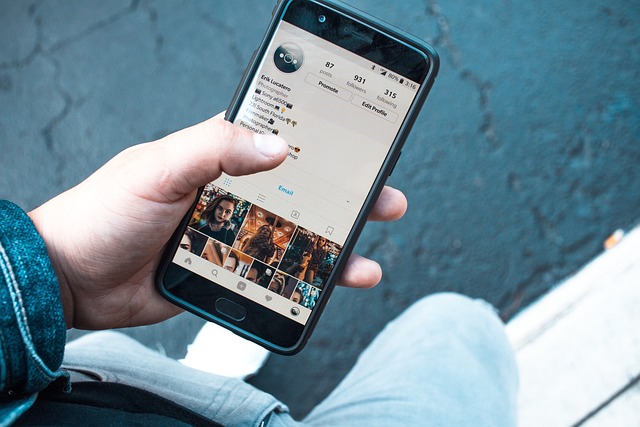Table of Contents
7 Phone Habits That Could Secretly Be Signs Of Anxiety. Smartphones have become an essential part of our daily lives, but did you know that some of your phone habits could be linked to anxiety? While we often associate anxiety with excessive worrying or nervousness, it can also manifest in subtle, unconscious behaviors—especially when it comes to how we use our phones.
From constantly checking notifications to avoiding phone calls, these seemingly normal habits might actually be signs of underlying anxiety. In this article, we’ll explore seven phone habits that could secretly indicate anxiety, along with ways to manage them.
1. Constantly Checking Your Phone (Even Without Notifications)
Do you find yourself unlocking your phone repeatedly, even when there are no new messages, emails, or alerts? This habit, known as “phantom checking,” can be a sign of anxiety.
🔹 Why it happens:
- Anxiety makes the brain seek reassurance—checking your phone gives a temporary sense of control.
- The fear of missing out (FOMO) or important updates can trigger compulsive phone use.
- Dopamine (the brain’s “reward chemical”) is released every time we see a new notification, reinforcing the habit.
🔹 How to manage it:
✅ Set specific times to check your phone instead of constantly unlocking it.
✅ Use app blockers to limit unnecessary scrolling.
✅ Practice mindfulness—when you feel the urge to check your phone, pause and take a deep breath instead.
2. Feeling Anxious When You Don’t Have Your Phone
Do you panic when you realize you’ve left your phone at home? Does your heart race when your battery drops below 10%? If so, you might have nomophobia—the fear of being without your phone.
🔹 Why it happens:
- Phones provide a sense of security and connection, making it hard to detach.
- Anxiety thrives on “what if” thoughts (e.g., “What if I miss an important message?”).
- Being offline can trigger social anxiety—the fear of being unavailable or disconnected.
🔹 How to manage it:
✅ Start with small “phone-free” breaks each day.
✅ Carry a book or another distraction to reduce dependency.
✅ Remind yourself that most notifications aren’t urgent—the world won’t end if you don’t check your phone immediately.
3. Avoiding or Dreading Phone Calls
If you ignore phone calls or feel a wave of stress before answering, this could be a sign of phone call anxiety (a type of social anxiety). Many people are comfortable texting but fear talking on the phone.
🔹 Why it happens:
- Phone calls require immediate responses, which can be stressful for anxious minds.
- There’s no time to “edit” responses like in texts, leading to fear of saying the wrong thing.
- Anxiety can make phone conversations feel like high-pressure social interactions.
🔹 How to manage it:
✅ Start by answering short calls from close friends or family.
✅ Use scripts or notes to ease nervousness before making a call.
✅ Remind yourself that most people don’t expect perfect conversations.
4. Overanalyzing Messages and Text Responses
Do you re-read your messages multiple times before sending them? 7 Phone Habits That Could Secretly Be Signs Of Anxiety. Or feel anxious when someone takes too long to reply? Overanalyzing texts is a classic sign of social anxiety and a fear of rejection.
🔹 Why it happens:
- Anxiety makes people worry about how they come across in messages.
- Waiting for a reply can trigger self-doubt (“Did I say something wrong?”).
- Messages without emojis or punctuation might seem “cold” or unfriendly, leading to overthinking.
🔹 How to manage it:
✅ Send messages without over-editing—perfection isn’t necessary.
✅ Remind yourself that people are busy, and a delayed response doesn’t mean they’re upset.
✅ Avoid checking “read receipts” obsessively—it only fuels anxiety.
5. Doomscrolling (Endlessly Scrolling Through Bad News)
Do you find yourself stuck scrolling through negative news, social media drama, or distressing content? This behavior, known as doomscrolling, can increase anxiety levels without you realizing it.
🔹 Why it happens:
- Anxiety tricks the brain into thinking that staying informed will prevent bad things from happening.
- Negative headlines trigger stress hormones, making people feel overwhelmed but unable to stop reading.
- Social media algorithms promote sensational news, keeping users engaged (and anxious).
🔹 How to manage it:
✅ Set a time limit for news and social media browsing.
✅ Follow positive, uplifting accounts instead of only consuming negative content.
✅ Practice “news fasting”—take breaks from social media to reset your mind.

6. Using Your Phone as an Escape From Reality
Do you grab your phone whenever you feel uncomfortable, bored, or stressed? If so, you may be using it as an emotional escape.
🔹 Why it happens:
- Anxiety makes people avoid difficult emotions—phones provide an easy distraction.
- Endless scrolling creates a false sense of productivity (even when it’s not meaningful).
- Social media and entertainment apps offer an instant dopamine boost, making them addictive.
🔹 How to manage it:
✅ Recognize when you’re using your phone to avoid something uncomfortable.
✅ Replace screen time with healthier coping strategies (journaling, meditation, going for a walk).
✅ Set up “no-phone” zones during meals, bedtime, or work hours.
7. Checking for Reassurance Through Social Media
Do you constantly check likes, comments, or views on your posts? Do you feel anxious if a post doesn’t get much engagement? This habit can be linked to social validation anxiety.
🔹 Why it happens:
- Anxiety creates a need for external reassurance (e.g., “Do people like me?”).
- Social media platforms are designed to reward engagement with dopamine hits.
- Comparing likes and comments can lead to self-worth issues.
🔹 How to manage it:
✅ Post content for yourself, not just for validation.
✅ Reduce screen time after posting—avoid obsessively checking engagement.
✅ Focus on real-life interactions instead of relying on online approval.
Final Thoughts: Recognizing and Managing Phone-Related Anxiety
Phones are an integral part of modern life, but certain habits may signal underlying anxiety. 7 Phone Habits That Could Secretly Be Signs Of Anxiety.If you relate to several of these behaviors, it’s worth reflecting on how your phone use affects your mental health.
Quick Recap of Phone Habits Linked to Anxiety:
1️⃣ Constantly checking your phone for no reason.
2️⃣ Feeling anxious without your phone (nomophobia).
3️⃣ Avoiding or dreading phone calls due to social anxiety.
4️⃣ Overanalyzing messages and replies out of fear of rejection.
5️⃣ Doomscrolling through negative news and social media content.
6️⃣ Using your phone as an emotional escape instead of addressing stress.
7️⃣ Seeking reassurance through likes and comments on social media.
If you recognize these patterns, try implementing small changes to break free from anxious phone habits. Setting boundaries, reducing screen time, and practicing mindfulness can help regain control over your digital life.


